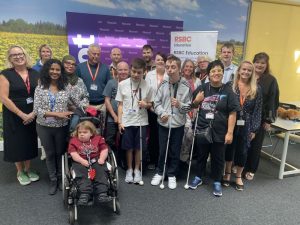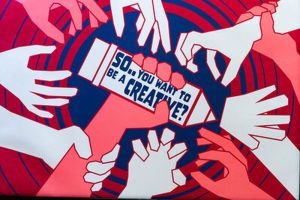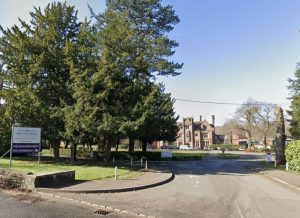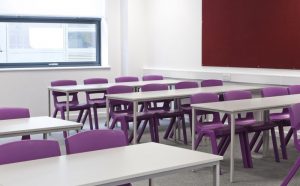Vertical farming has been hailed as a futuristic answer to Britain’s food security challenges – but a new study led by the University of Surrey suggests the picture is more complicated.
The research, published in Food and Energy Security, found that while vertical farms can deliver extraordinary crop yields and use far less water than traditional fields, their carbon footprint still exceeds that of soil-based farming.
What is vertical farming?
Unlike conventional agriculture, vertical farms grow crops indoors, often in stacked trays under carefully controlled light, temperature and humidity. Plants are usually grown without soil, using hydroponic or aeroponic systems that deliver nutrients directly to their roots. This means vertical farms can operate in cities, warehouses, or disused buildings – and, crucially, they are not dependent on weather or seasons.
Proponents argue that this approach could free up farmland for nature, cut transport emissions by producing food closer to consumers, and help guarantee supplies as climate change disrupts traditional growing regions.
The Surrey-led study
The University of Surrey team compared lettuce grown in a commercial UK vertical farm with lettuce from two UK field farms – one on mineral soil and one on peat – and with Spanish farms, which supply around 95% of Britain’s winter lettuce.
They found that vertical farms can produce more than 20 times the yield of field farms: around 97 kilograms of lettuce per square metre, compared with just 3.3 kilograms outdoors. Water use is also dramatically lower, at 0.9 m³/kg compared with up to 7.3 m³/kg in Spain.
But the greenhouse gas emissions are still higher. Even when powered by renewable energy, vertically farmed lettuce produced about 0.93 kg of greenhouse gases per kilogram, compared with 0.57 kg from UK field farms.
Energy and materials the key hurdles
Much of the carbon burden comes from the heavy energy demands of lighting and climate control, as well as the jute fibre plugs used to support plant roots. Researchers estimate that swapping these for alternatives such as coconut coir could cut the land footprint of vertical farms by more than 95%.
Michael Gargaro, Postgraduate Researcher at Surrey’s Centre for Environment and Sustainability and lead author of the study, said:
“Vertical farming has the potential to transform food security in the UK, particularly as climate change and seasonal drought place growing pressure on traditional agriculture. Our research shows that while the technology can bring far higher yields and reduce water use, it currently comes with a higher carbon cost. The challenge now is to make vertical farming more energy-efficient and better integrated with renewable systems, so that it can become a truly sustainable solution.”
Dr Zoe M Harris, Director of the Centre and Co-Director of the Institute for Sustainability, added:
“With around 95 per cent of lettuce imported from Spain during the winter months, advances in vertical farming make it possible to secure a year-round supply of fresh produce while freeing up land for restoration. But to viably compete with field farming, vertical farms must cut their energy use and rethink the materials they rely on.”
Can vertical farms really feed the UK?
The study concludes that vertical farms are not yet the most sustainable option for lettuce. But with further innovation – particularly in energy efficiency and material use – they could become an essential part of Britain’s food system. For now, they remain a promising supplement to, rather than a replacement for, traditional farming.
The research was funded by the Biotechnology and Biological Sciences Research Council (BBSRC) and the Engineering and Physical Sciences Research Council (EPSRC).











